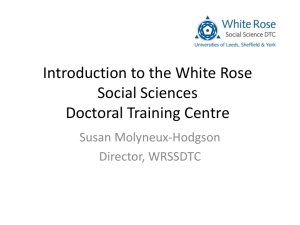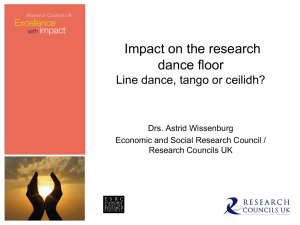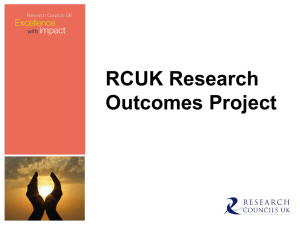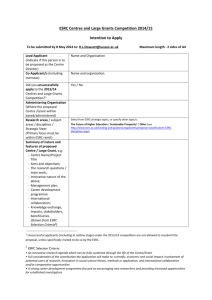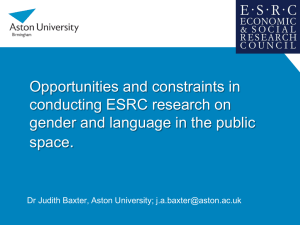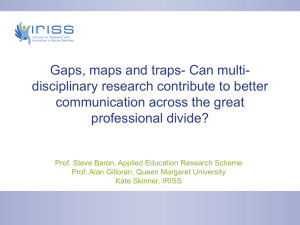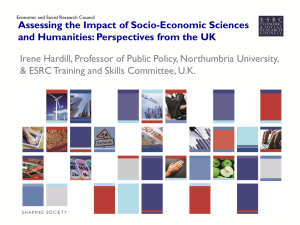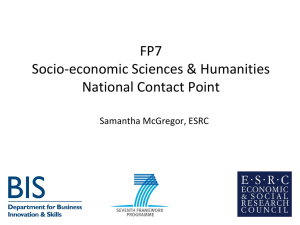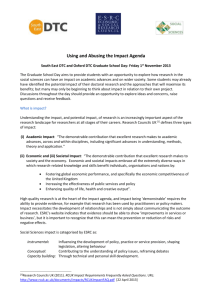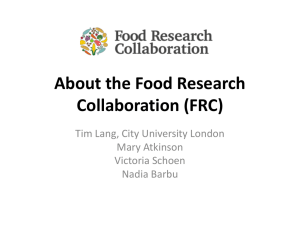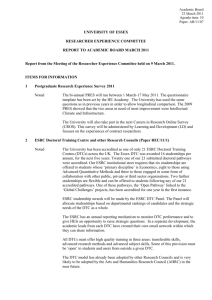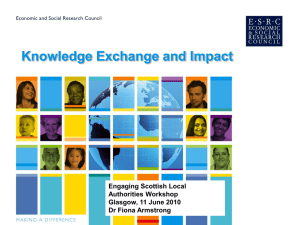ESRC Key Priorities & Future Strategy
advertisement
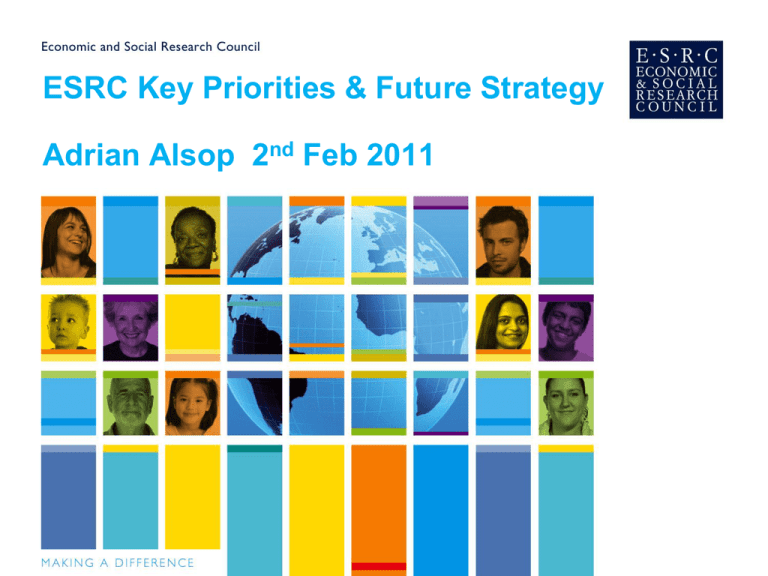
ESRC Key Priorities & Future Strategy Adrian Alsop 2nd Feb 2011 Excellence with Impact o ESRC enduring values – clear commitment to: o Quality o Impact o Independence Government Spending Review 2010 o Spending Review outcome for Science Budget announced 20th October ‘maintaining resource spending in cash terms’ – equates to an 8-9% reduction in real terms o ESRC allocation published with Delivery Plan on 20th December. Figures represent an approx 3% cut in cash terms – a 12% cut in real terms Government Spending Review 2010 o Capital also reduced but not by the amount feared – we will be able to protect our unique core data infrastructure o Administrative costs being reduced over the CSR period, about 20% in real terms Delivery Plan 2011-15 o Strategic Priorities o Delivering our priorities o Excellent social science research o National capability o Research infrastructure o Partnerships o International collaboration o Cross Council Themes o Economic and Societal Impact Strategic Priorities o Seven key challenges, now focus on: o Three strategic priorities 1. Economic Performance and Sustainable Growth 2. Influencing Behaviour and Informing Interventions 3. Vibrant and Fair Society o These will apply across the ESRC’s business including research, training, resources, knowledge exchange etc Restructuring Schemes o Focusing resources on longer, larger grants – ambitious social science. o Halt Small Grants, Mid-Career Fellowships schemes o Increase lower and upper thresholds for Standard Grants scheme o Streamlining: fewer but more flexible research competitions o Merge Large Grants and Centres o Replace First Grants PDFs with New Research Leaders Doctoral Training o DTCs – deliver postgraduate training through more strategic allocation of studentships o A cohort of students in each DTC o Move from accreditation to allocation o Discontinue open studentship competitions o Concentrating the majority of studentships in strategic areas o Announced outcome in January Managing Demand o Current system is unsustainable – manage around 3000 applications and success rates around 15% o May require more self regulation in HEIs o Considering a range of options: o Measures including tougher sifting, no resubmissions o Institutional sanctions o Institutional quotas o Charging for submission of applications o Overall strategy may include range of measures Data Infrastructure o Strong data infrastructure is an essential core resource o We support some of the world’s leading studies o Underpin research and training, and provide evidence to both academic and non-academic researchers o Only ESRC supports these kinds of large, long-term investments o The longitudinal ‘jewels’ appreciate in value o Despite cuts to capital, we will protect a ‘core’ data infrastructure Partnership o Deliver a comprehensive co-funding strategy o ‘Ventures’ – now the standard model for collaborative research funding o Involve the public with ESRC research-practice what social science advocates in terms of upstreaming involvement and co-production of knowledge Partnership o Build on existing proven mechanisms and extend role of ESRC as a knowledge broker o Continue to see public sector and third sector as important audiences with which to engage and collaborate o Business/private sector a priority for increased engagement - aim to increase business co-funding to 5% of external income by 2015 International Collaboration o Continue to encourage and promote international collaboration across all our activities o Focus on key international partners – 3 RCUK offices o Rationalise existing targeted schemes o Develop innovative new ways of enabling international collaboration (e.g. Open Research Area) o Actively encourage social scientists to engage with international funding opportunities e.g. FP8 o Continue successful partnership with DfID RCUK Collaboration o Social science remains essential and central to all seven cross-Council themes (we contribute to all) o The value of social science is recognised by all the Research Councils o Inter-disciplinary research will continue to play an important role o ESRC will remain committed to ensuring social science features in the whole RCUK research agenda Impact Agenda o We want to support our researchers in engaging and collaborating with users throughout the life cycle of projects – including before and after o We are specifically interested in working with our major investments, including DTCs, to address o engagement with the business sector o the three key priorities Impact Agenda o Will focus our Knowledge Exchange schemes on key areas where specific support is required e.g. in followon funding o New Impact Toolkit: o an expansion of the Communications toolkit o A practical tool o draws on best practice from investments (and will continue to do so) o Launched with new ESRC website January 2011 ESRC Key Priorities & Future Strategy Adrian Alsop 2nd Feb 2011
